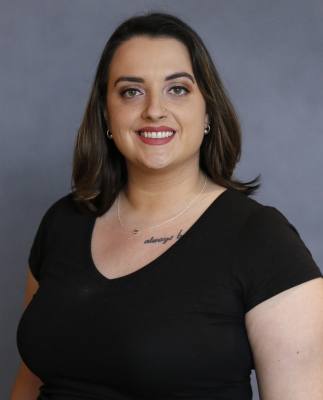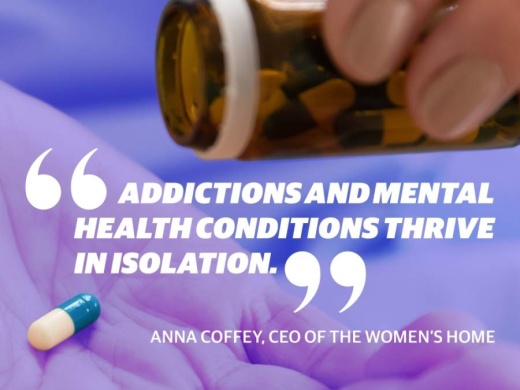South Houston-based Buckner Family Hope Center at Reed Road is working with Ambassadors for Christ to help serve virtually those in addiction recovery, according to an April 30 news release. Buckner is hosting weekly addiction recovery classes via Zoom to foster a community of support while adhering to social distancing procedures as well as to remind clients of tools they can use when feeling triggered by events in their lives, Family Hope Center Director Dior Burns said.
“Staying committed to addiction recovery during this time is more difficult because many families are dealing with extra stress and pressures that they are not used to handling,” Burns said in the release. “Virtual video chat meetings support and encourage clients by assuring them they are not alone in their journey. When they see others with similar struggles, they feel more comfortable being vulnerable with the group.”
Kathy Griffin, the group facilitator with Ambassadors for Christ, said in the release that the virtual meetings are successful in maintaining productive recovery paths for clients. Group members are committed to changing their lives and are making the best of the current situation, she added.
Leaders at Lambda Center Houston, a recovery clubhouse for the LGBTQ+ community and its allies, and The Women’s Home, a nonprofit that helps women reclaim stability through its treatment center and housing programs, said that isolation is dangerous for anyone dealing with addiction issues. The organizations have worked to combat the effects of this isolation through online activities.
The Women's Home CEO Anna Coffey said the organization has been reaching out to clients directly by phone to keep in touch and has moved almost all programming to virtual, including therapy and 12-step meetings for recovering addicts. The pandemic has caused a major upset in operations, and a challenging one, Coffey said.
The Women’s Home has a transitional housing program and two permanent housing programs, and Coffey said that women living in these communities, many of whom are living alone, have described their isolation as “crushing.”
“We have been getting a lot of feedback from them that they’re just very lonely,” she said. “It is challenging their sobriety. ... Addictions and mental health conditions thrive in isolation.”
Coffey said the organization expects substance abuse issues to skyrocket for this reason, making it even more difficult to have to curtail activities at a time when women increasingly need them.
The organization’s Montrose campus, a long-term treatment facility, relies heavily on group activities, which have been scaled back significantly given the pandemic. Some in-person activities are still being held with small groups, but a majority are now virtual, which Coffey said has been “a lifeline” for numerous women.
Lambda Center has been operating virtually since March 15, Board Chairman Martin Sunday said. Since then, there have been four virtual discussions a day: three Alcoholics Anonymous meetings and one Crystal Meth Anonymous meeting.
The virtual meetings were put into place before Harris County enacted its stay-at-home order March 24 to accommodate people who were not comfortable coming into the center, Sunday said. The center has been in operation since the 1970s, hosting more than 65,000 recovery-oriented meetings per year.
Members of the LGBTQ+ community that utilize the center’s services could be more susceptible to the coronavirus because they are often immunocompromised, he said. The center chose to be cautious with in-person gatherings in mid-March for this reason. An outbreak among at-risk clients could decimate the city’s LGBTQ+ population, Sunday said.
“A lot of the people in [our LGBTQ+] community are older people, ... smokers, drug addicts, alcoholics—they’ve got compromised immune systems,” Sunday said.
Meeting start times range from 6:30 a.m. to 8 p.m. People attend meetings to find support and hear potential solutions for dealing with the effects of isolation, he added.
Sunday echoed Coffey’s sentiment that the most difficult aspect of the pandemic for many addicts is its accompanying loneliness given social distancing measures.
“Loneliness is what causes relapse quite often,” he said.
The center launched a virtual hangout room that allows people to congregate and spend time with one another in lieu of in-person gatherings and social outings. Sunday said feedback on the room has so far been very positive.
As is the case with Family Hope Center clients, Sunday said Lambda Center clients coalesce around their shared crisis experiences, connecting with each other to learn new tools related to navigating life and maintaining sobriety. For example, the acronym HALT—which stands for “hungry, angry, lonely, tired”—is taught as a way to self-assess.
Although risk factors can negatively impact the physical and emotional health of LGBTQ+ people, Sunday said these factors mean the people that the Lambda Center serves are in some ways better prepared to weather their current situation with the coronavirus pandemic.
“In a way, we kind of have a leg up on the rest of the world right now,” Sunday said. “We’re already getting through the crisis we’ve had in our lives that it took for us to get sober and stay sober.”
Coffey also spoke of the ways their women clientele have come together to help each other in the face of another crisis. One client, she said, had recently been learning to read but lost access to the necessary resources due to the pandemic, so another client stepped in and picked up the lessons.
She encouraged Houstonians to extend a hand to anyone that they know may be at risk due to addiction issues during this time.
“The best thing that you can do is really reach out to them, let them know you’re there to support them [and] help them find other resources,” Coffey said. “The population really needs to have the extra support.”





